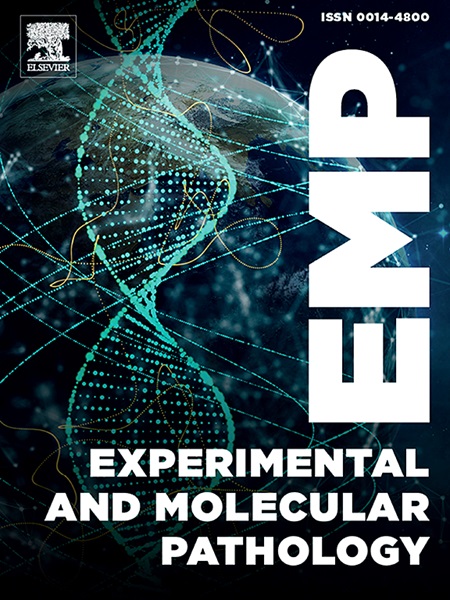Advances in sepsis research: Insights into signaling pathways, organ failure, and emerging intervention strategies
IF 3.7
4区 医学
Q2 PATHOLOGY
引用次数: 0
Abstract
Sepsis is a complex syndrome resulting from an aberrant host response to infection. A hallmark of sepsis is the failure of the immune system to restore balance, characterized by hyperinflammation or immunosuppression. However, the net effect of immune system imbalance and the clinical manifestations are highly heterogeneous among patients. In recent years, research interest has shifted from focusing on the pathogenicity of microorganisms to the molecular mechanisms of host responses which is also associated with biomarkers that can help early diagnose sepsis and guide treatment decisions. Despite significant advancements in medical science, sepsis remains a major challenge in healthcare, contributing to substantial morbidity and mortality worldwide. Further research is needed to improve our understanding of this condition and develop novel therapies to improve outcomes for patients with sepsis. This review explores the related signal pathways of sepsis and underscores recent advancements in understanding its mechanisms. Exploration of diverse biomarkers and the emerging concept of sepsis endotypes offer promising avenues for precision therapy in the future.

败血症研究进展:洞察信号通路、器官衰竭和新兴干预策略
脓毒症是一种复杂的综合征,由宿主对感染的异常反应引起。败血症的一个标志是免疫系统恢复平衡的失败,其特征是过度炎症或免疫抑制。然而,免疫系统失衡的净效应和临床表现在患者之间是高度异质性的。近年来,研究兴趣从关注微生物的致病性转向宿主反应的分子机制,这也与生物标志物有关,可以帮助早期诊断败血症并指导治疗决策。尽管医学科学取得了重大进步,但败血症仍然是医疗保健领域的主要挑战,在世界范围内造成了大量的发病率和死亡率。需要进一步的研究来提高我们对这种情况的理解,并开发新的治疗方法来改善脓毒症患者的预后。这篇综述探讨了脓毒症的相关信号通路,并强调了了解其机制的最新进展。多种生物标志物的探索和脓毒症内型概念的出现为未来的精确治疗提供了有希望的途径。
本文章由计算机程序翻译,如有差异,请以英文原文为准。
求助全文
约1分钟内获得全文
求助全文
来源期刊
CiteScore
8.90
自引率
0.00%
发文量
78
审稿时长
11.5 weeks
期刊介绍:
Under new editorial leadership, Experimental and Molecular Pathology presents original articles on disease processes in relation to structural and biochemical alterations in mammalian tissues and fluids and on the application of newer techniques of molecular biology to problems of pathology in humans and other animals. The journal also publishes selected interpretive synthesis reviews by bench level investigators working at the "cutting edge" of contemporary research in pathology. In addition, special thematic issues present original research reports that unravel some of Nature''s most jealously guarded secrets on the pathologic basis of disease.
Research Areas include: Stem cells; Neoangiogenesis; Molecular diagnostics; Polymerase chain reaction; In situ hybridization; DNA sequencing; Cell receptors; Carcinogenesis; Pathobiology of neoplasia; Complex infectious diseases; Transplantation; Cytokines; Flow cytomeric analysis; Inflammation; Cellular injury; Immunology and hypersensitivity; Athersclerosis.

 求助内容:
求助内容: 应助结果提醒方式:
应助结果提醒方式:


